Middle East Dialogues
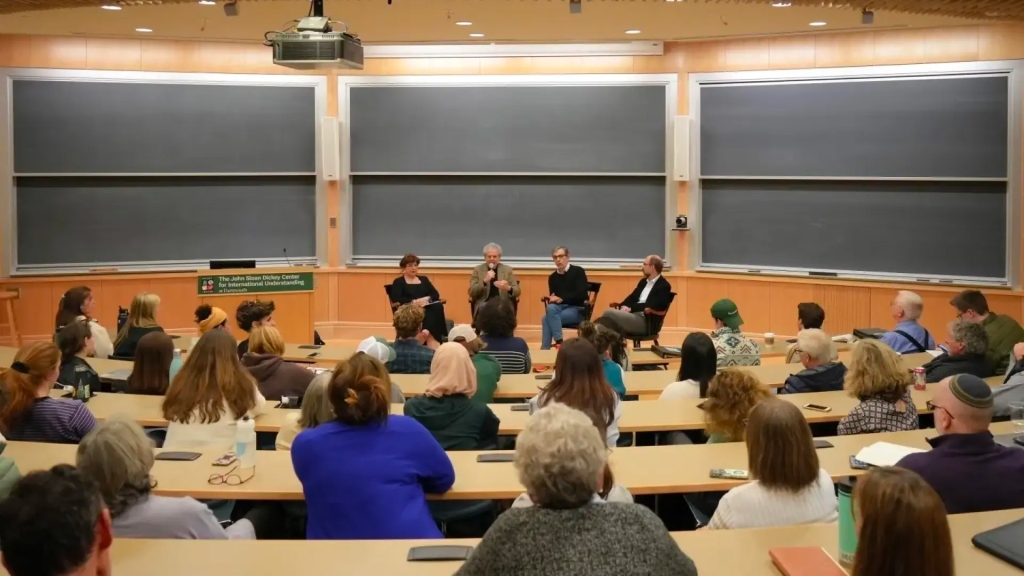
Faculty convened a forum on the Middle East on Oct. 10, with more than 1,000 people also watching online. From left: Susannah Heschel, Jewish studies professor and chair; Bernard Avishai, visiting professor of government; Ezzedine Fishere, senior lecturer; and Jonathan Smolin, associate professor of Middle Eastern studies. (Photo By Sophia Scull ’25)
Our First Special Topic Series
Dartmouth’s interdisciplinary programs in Jewish Studies and Middle Eastern Studies have a longstanding commitment to fostering dialogue, community, and joint academic inquiry. Building on this decades-long partnership and recent campus forums on the current conflict, the Middle East Dialogues foster learning and an open exchange of ideas to bridge what can appear to be an impenetrable divide.
The Middle East Dialogues represented the Dialogue Project's first special topic series and encompassed courses and events related to timely challenging topics during the 2023-24 academic year.
Expanded Course Offerings
Expanded courses taught by faculty and visiting professors explore the long history that connects Arabs and Jews, identifying commonalities in belief, perception, and struggle. These courses place the current conflict in a larger historical context and address and defuse current grievances and misrepresentations. Coursework encompasses community building and peace-making efforts not only by politicians but also by religious leaders, feminist activists, and human rights organizations.
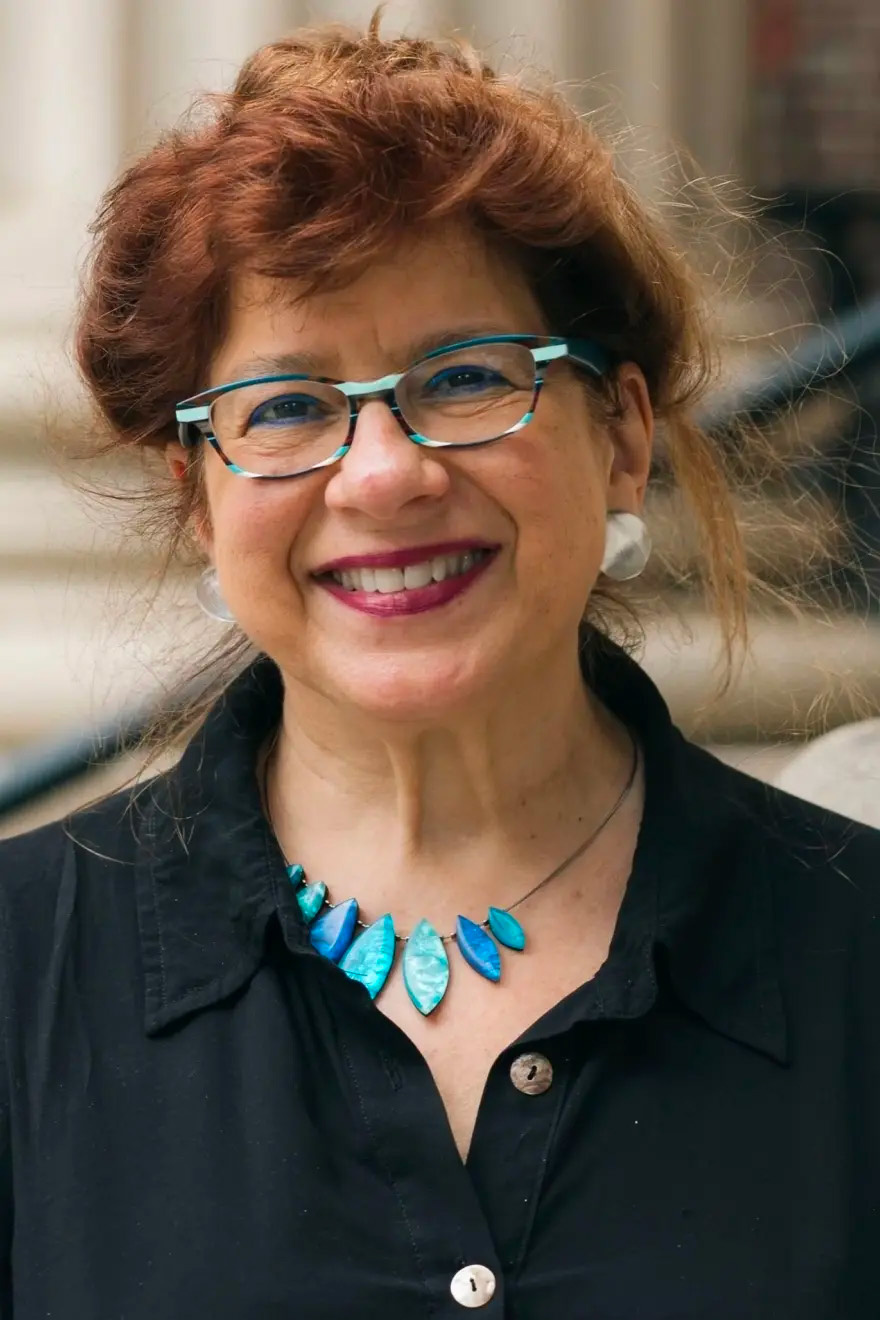
“A combination of curiosity and empathetic listening is a crucial element for learning—welcoming divergent perspectives while rejecting polarization, dehumanization, and violence of all kinds.”
Susannah Heschel, Jewish Studies Professor and Chair
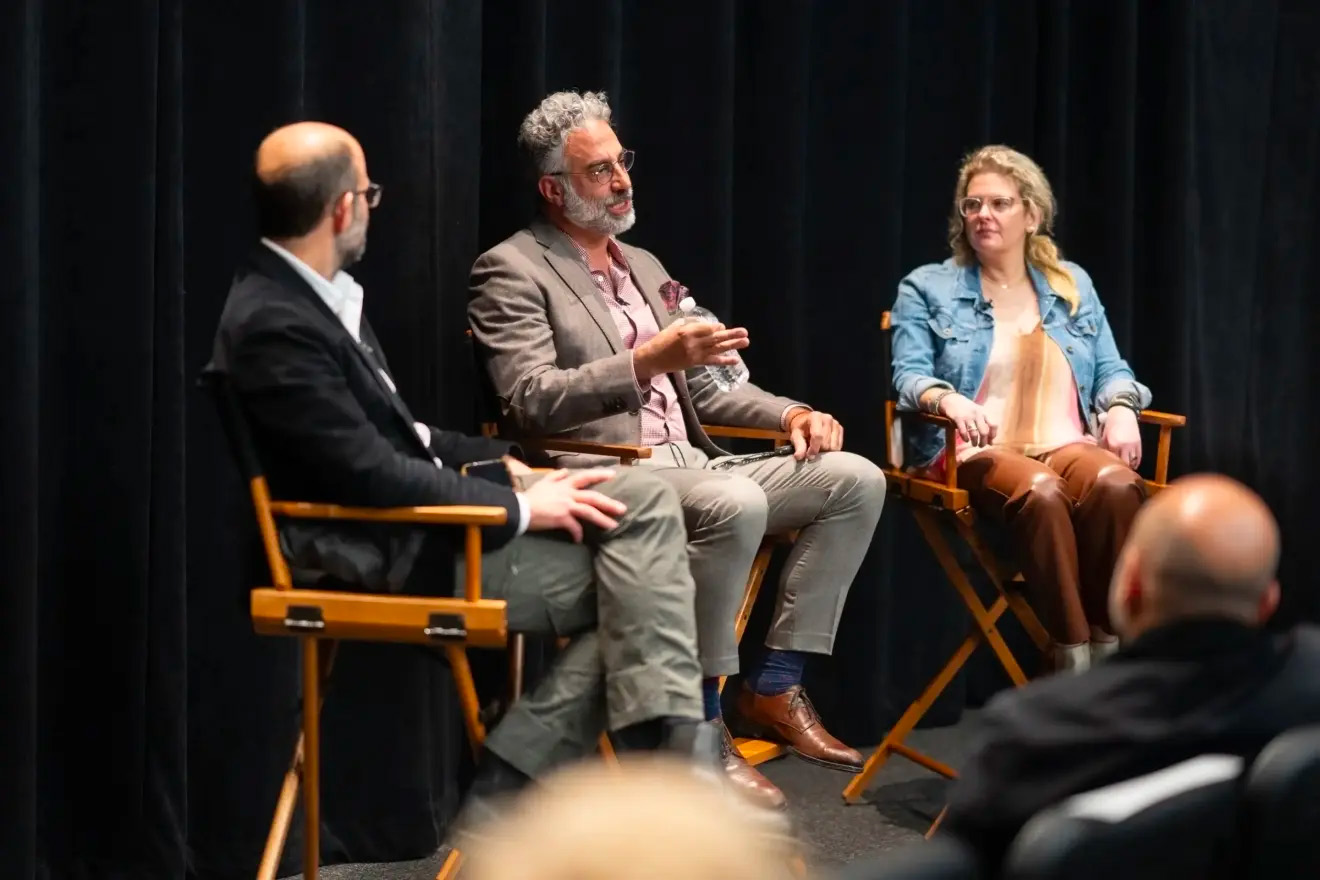
University of Pacific law professor Omar Dajani answers a question about Israeli-Palestinian relations during a forum at Dartmouth this fall with Mira Sucharov, a political science professor at Carleton University. Middle Eastern Studies professor Jonathan Smolin, left, was serving as moderator. (Photo By Ben Joel ’27)
Public Forums
Once per term, a public dialogue was hosted between speakers with divergent backgrounds, building on the success of this past fall’s event featuring a Palestinian and Jewish writing and podcast team who have spent their careers focused on a vision of Israeli and Palestinian coexistence.
Public Forums
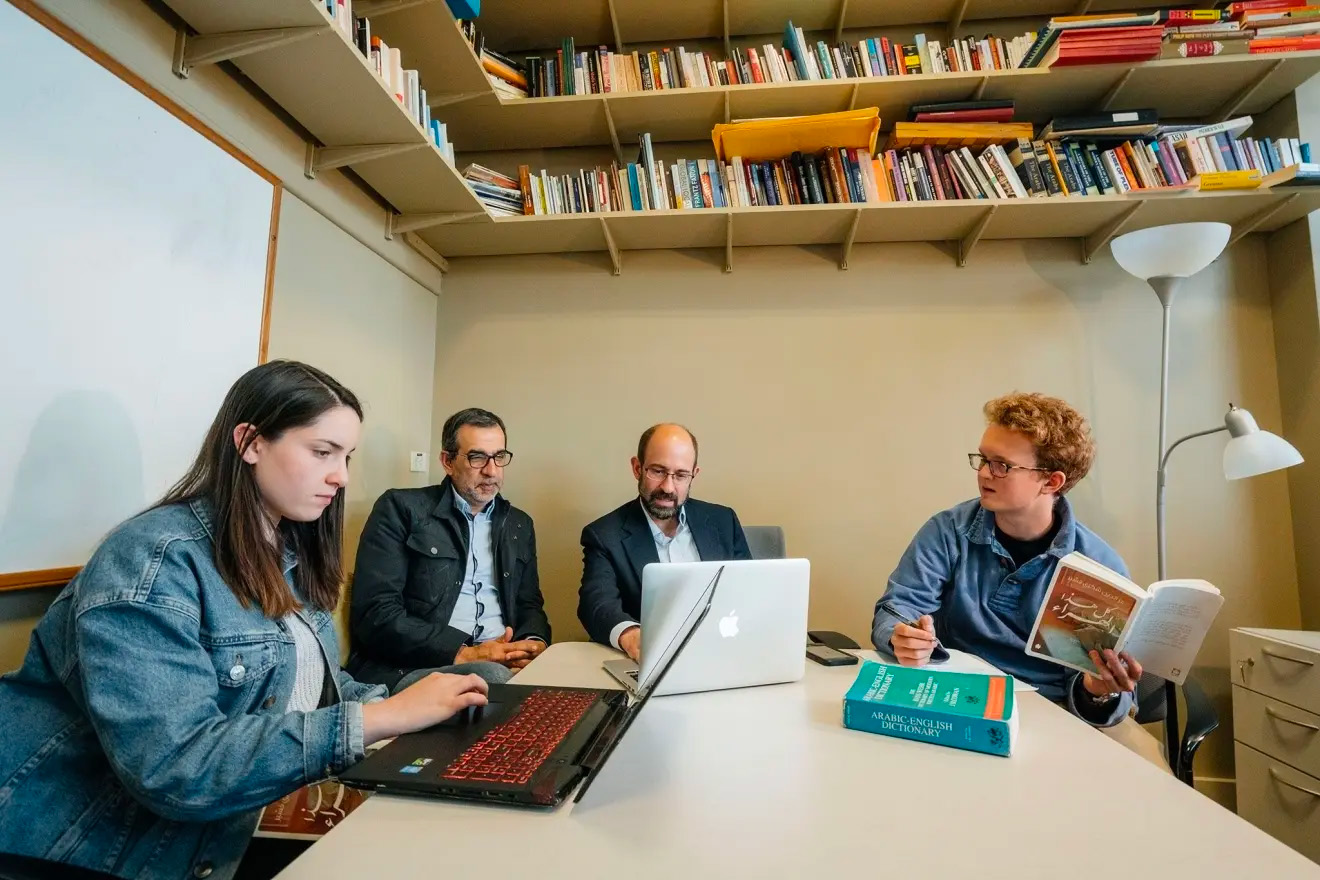
Charlotte Kamin ’18 (left) served as a visiting professor in 2017 and collaborated with senior lecturer Ezzedine Fishere, professor Jonathan Smolin, and Joseph Mears ’18.
Webinar Series: Politics of Israel and Palestine
As part of the Politics of Israel and Palestine course taught by Ezzedine Fishere and in collaboration with the John Sloan Dickey Center for International Understanding, a webinar series brought experts on the region to students for dialogue on the Israeli-Palestinian conflict. Select sessions were open to the broader Dartmouth community.
WATCH VIDEOS
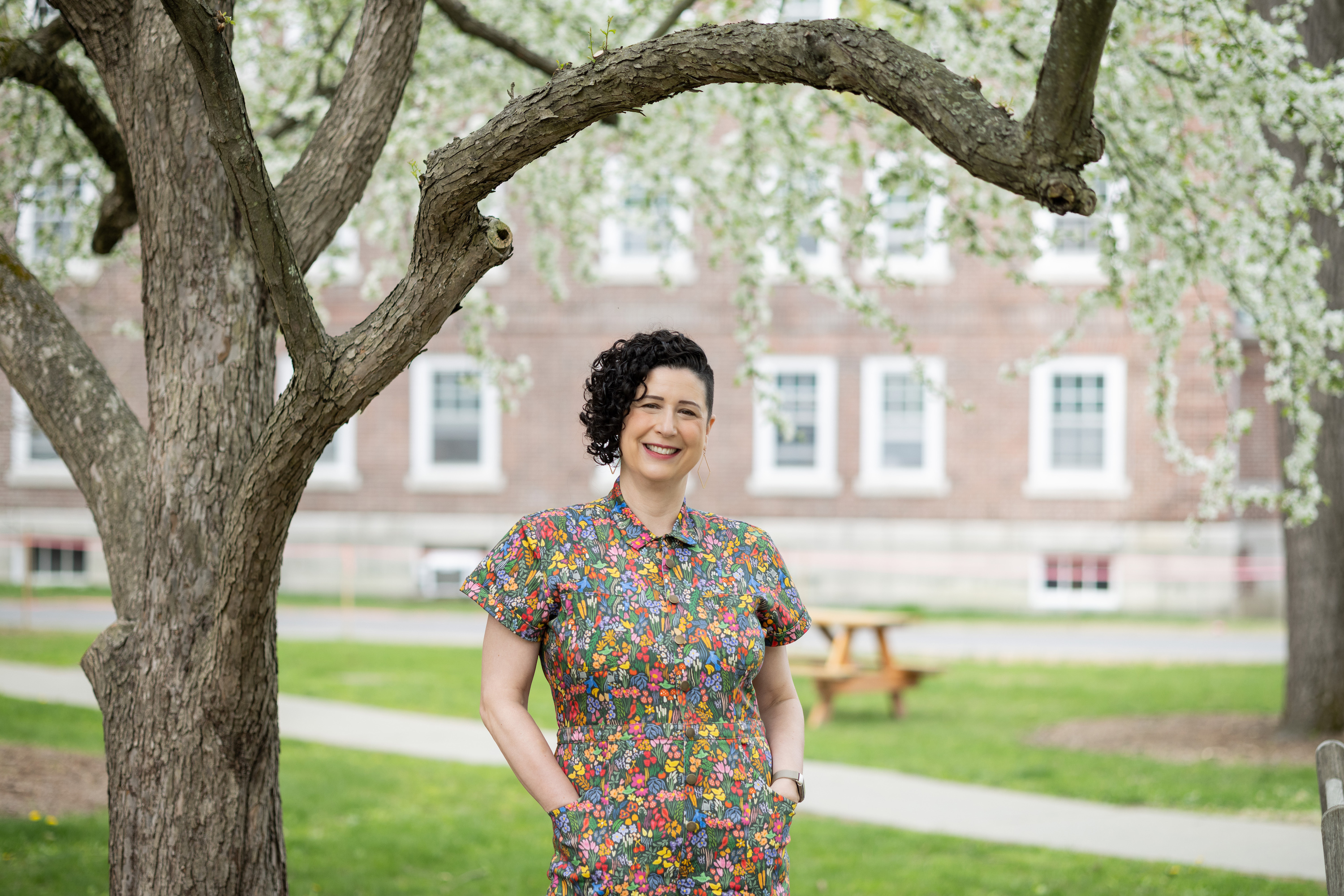
Bringing Brave Spaces to Higher Education
Kristi Clemens expands her work as executive director of the Dialogue Project.
Read More
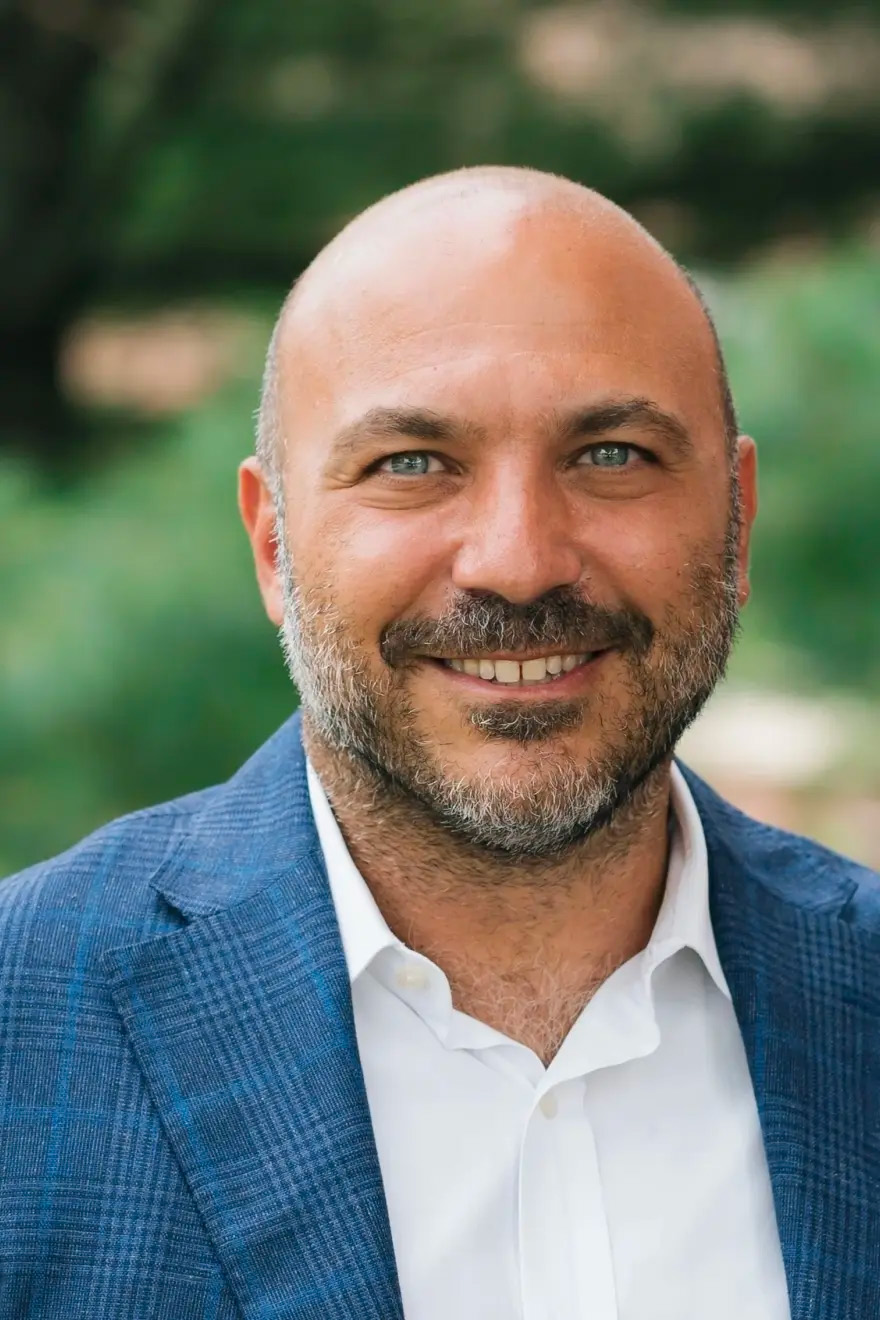
“Ultimately, dialogue relies on the assumption that we’re all learners committed to curiosity and remaining open to new ideas and perspectives.”
Tarek El-Ariss, Middle Eastern Studies Professor and Chair
Related Stories
Council on Foreign Relations
Webinar: Navigating academic discourse on Israel and Palestine
NPR
How two Dartmouth professors are addressing the Israeli-Palestinian conflict
The Economist
The Gaza war could help set speech free again.